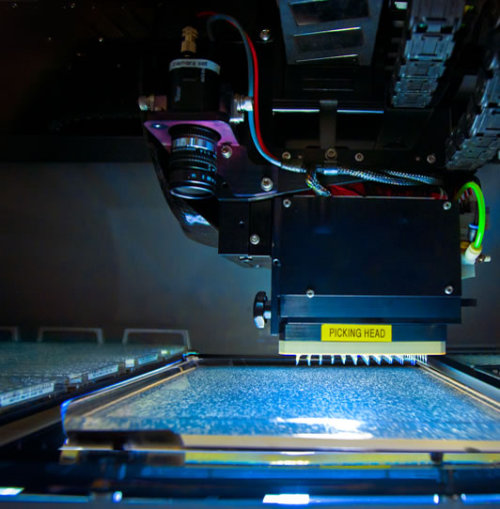Learn about a new "superpower" that isn't being taught in in 90% of US schools.
Showing posts with label programming. Show all posts
Showing posts with label programming. Show all posts
Thursday, March 7, 2013
Lecture: What Most Schools Don't Teach
Learn about a new "superpower" that isn't being taught in in 90% of US schools.
Tuesday, October 30, 2012
Tech: A biology-friendly robot programming language

A biology-friendly robot programming language:
For researchers in the biological sciences, however, the future training of robots has been made much easier thanks to a new program called “PaR-PaR” (Programming a Robot). Nathan Hillson, a biochemist at the U.S. Department of Energy (DOE)’s Joint BioEnergy Institute (JBEI), led the development of PaR-PaR, a simple high-level, biology-friendly, robot-programming language that allows researchers to make better use of liquid-handling robots and thereby make possible experiments that otherwise might not have been considered. “The syntax and compiler for PaR-PaR are based on computer science principles and a deep understanding of biological workflows,” Hillson says. “After minimal training, a biologist should be able to independently write complicated protocols for a robot within an hour. With the adoption of PaR-PaR as a standard cross-platform language, hand-written or software-generated robotic protocols could easily be shared across laboratories.”
Source: Kurzweil
Thursday, May 17, 2012
Quote
The importance of learning to code isn’t so that everyone will write code, and bury the world under billions of lines of badly conceived Python, Java, and Ruby. The importance of code is that it’s a part of the world we live in. I’ve had enough of legislators who think the Internet is about tubes, who haven’t the slightest idea about legitimate uses for file transfer utilities, and no concept at all about what privacy (and the invasion of privacy) might mean in an online space. I’ve had enough of patent inspectors who approve patents for which prior art has existed for decades. And I’ve had enough of judges making rulings after listening to lawyers arguing about technologies they don’t understand. Learning to code won’t solve these problems, but coding does force engagement with technology on a level other than pure ignorance. Coding is a part of cultural competence, even if you never do it professionally. Alsup is a modern hero.
- - "A federal judge learned to code" by Mike Loukides, May 16, 2012.
- Originally posted to O'Reilly Radar.
Monday, March 26, 2012
Lecture: Militarizing Your Backyard
Militarizing your Backyard with Python: Computer Vision and the Squirrel Hordes
Has your garden been ravaged by the marauding squirrel hordes? Has your bird feeder been pillaged? Tired of shaking your fist at the neighbor children? Learn how to use Python to tap into computer vision libraries and build an automated sentry water cannon capable of soaking intruders.
Labels:
lecture,
programming,
tutorial,
video,
weapons
Thursday, February 2, 2012
News: Codecademy Becomes A Platform
Codecademy Becomes A Platform: Now Anyone Can Write Programming Tutorials:
Source: TechCrunch
One of the most buzzed-about startups over the last few months has been Codecademy — a site that looks to make programming accessible to just about anyone, with a variety of interactive, web-based courses that have users writing their first lines of code within a few seconds. The site’s ‘Code Year’ program, which invites users to receive one programming lesson each week, racked up a whopping 100,000 signups in only 48 hours — and it even has the White House on board.
But, as anyone who has spent much time on the site can attest to, Codecademy has had one big problem: there just aren’t that many lessons available. And the ones that are on there sometimes seem to be moving too quickly, without many practice exercises to explore and reinforce what you’ve just learned.
Today, the company is launching a feature that will go a long way toward fixing that. Meet the Codecademy Course Creator.
Source: TechCrunch
Tuesday, January 17, 2012
OpEd: Why I am learning to code
Why I am learning to code and you should, too:
It’s time Americans begin treating computer code the way we do the alphabet or arithmetic. Code is the stuff that makes computer programs work — the list of commands that tells a word processor, a website, a video game, or an airplane navigation system what to do. That’s all software is: lines of code, written by people.Source: Rushkoff.com
We are socializing, working, consuming, and living in a world increasingly defined by programs. Learning to code is the best way to understand what all those programs do, or even to recognize that they are there in the first place.
Subscribe to:
Posts (Atom)
